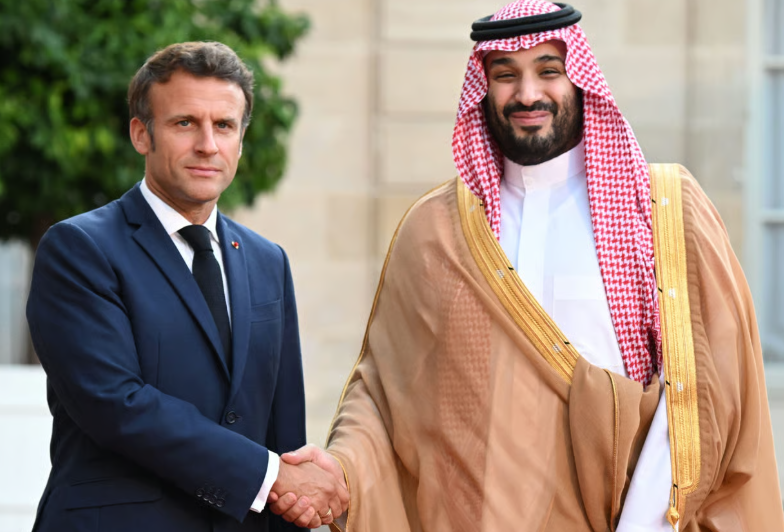Riyadh axis behind Macron's u-turn on Palestine
The announcement of the imminent recognition by the Élysée Palace was immediately welcomed by Saudi Arabia. Today, Saudi Arabia shares with Paris not only an initiative at the UN on the reaffirmation of the two-state solution in the Israeli-Palestinian conflict, but also many political and economic interests in the Middle East.
Milan (AsiaNews/Agencies) - ‘The Kingdom applauds this historic decision, which reaffirms the international community's consensus on the Palestinian people's right to self-determination and the creation of an independent state within the 1967 borders, with East Jerusalem as its capital.’
As soon as French President Emmanuel Macron announced last night his intention to recognise the Palestinian state at the next UN General Assembly in September, the Saudi Arabian Foreign Ministry issued an official statement welcoming the initiative.
This is clearly no coincidence: Paris' move is part of the diplomatic initiative that France and Saudi Arabia are pursuing together on this issue, which will see the two countries chair the “High-Level International Conference for the Peaceful Resolution of the Palestinian Question and the Implementation of the Two-State Solution”, which they had convened for the end of June but which was then postponed due to the outbreak of the 12-day war between Israel and Iran.
But it is not only the Palestinian issue that unites France and Saudi Arabia today. In the name of the “strategic partnership” put in writing by Macron with Prince Mohammed bin Salman during his visit to Riyadh last December, the Franco-Saudi axis is emerging ever more clearly in the various issues open in the Middle East.
On the eve of last night's announcement in Paris, French Foreign Minister Jean-Noel Barrot met with his Saudi counterpart, Prince Faisal bin Sahran. In the statement released at the end of the summit, in addition to the Palestinian question and efforts to achieve a ceasefire in Gaza, the two heads of diplomacy spoke, for example, about their common role in the “stabilisation” of Syria.
It should not be forgotten that in February Macron went a long way towards accrediting the new leadership in Damascus by receiving the former militiaman and now de facto president Ahmad al-Sharaa at the Élysée Palace. And just a few hours ago, Riyadh announced investments worth .6 billion for the reconstruction of Syria. Another issue touched upon in the Paris talks was Lebanon, where both countries share the goal of strengthening the Beirut government and the ceasefire with Israel reached last November.
In tomorrow's big game in the Middle East, Mohammad bin Salman is therefore using Paris as a springboard to relaunch his leadership. He has opened a new table that effectively acts as a counterweight to pressure from the White House to achieve the “normalisation” of relations with Israel that has been talked about for years in the wake of the Abraham Accords. With two years of war in Gaza, the game has become more complex.
And with a weakened Iran and enormous economic interests linked to the transition of the Saudi economy to a model no longer centred solely on oil (the so-called Vision 2030), Riyadh is now increasingly aiming to play the game across the board.
11/04/2018 15:46
14/10/2020 09:25







.png)










